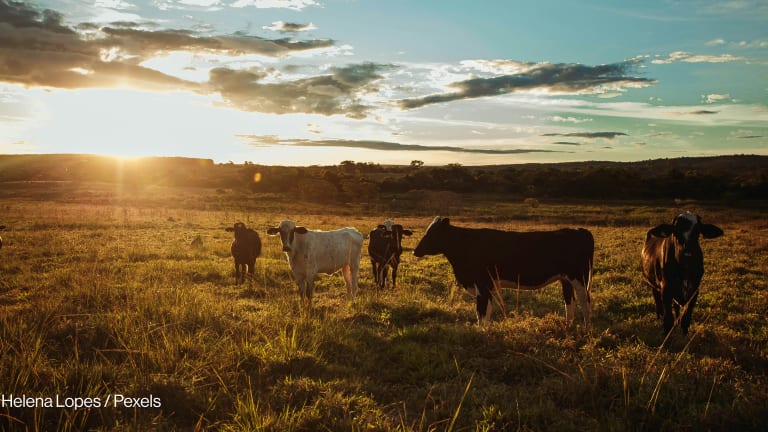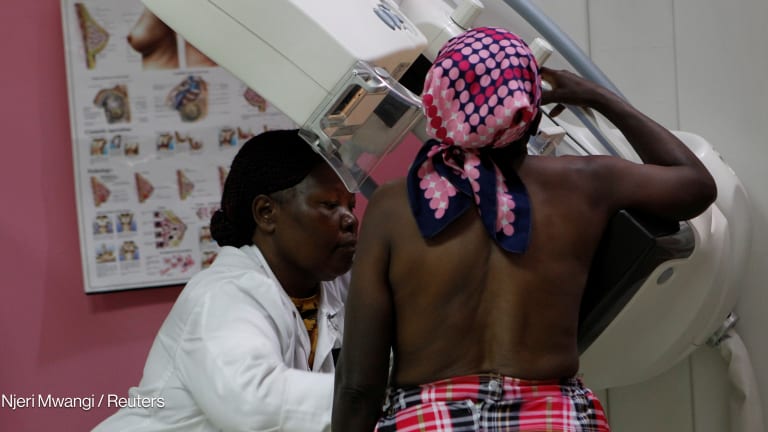New data gateway helps developing countries collect crucial information

CANBERRA — The Data for Health initiative from Bloomberg Philanthropies, and supported by the Department of Foreign Affairs and Trade, has entered a new phase in supporting developing countries to improve the collection and registration of vital statistics, including births and deaths.
Dealing with civil registration and vital statistics, the CRVS Knowledge Gateway, launched in New York on Nov. 30, helps developing country decision makers and partners learn about the process of collecting real and useful data on births, deaths, marriages, divorces, adoptions and more.
Q&A: Dr Death on Australia's leading role in data for health
Professor Alan Lopez is sometimes called Dr Death. But the moniker is one Lopez embraces. For him, the name demonstrates his four decades as an epidemiologist are making a difference. Today, his work focusing on cause of death statistics is at the core of the Data for Health Initiative, which is helping developing countries collect the data that improved health systems desperately need.
Developed at the University of Melbourne, project lead Professor Alan Lopez explained to Devex that the resource is the second generation of a 2008 initiative from AusAid, the Health Information Systems Knowledge Hub, which was developed by Lopez and colleagues at the University of Queensland. The Health Information Systems Knowledge Hub aimed to build knowledge, evidence and expertise to inform health policy dialogue in Asia and the Pacific.
The new CRVS Knowledge Gateway builds upon this resource, with the focus on collecting statistics to advance health policies and support.
“It came very clear to me early on that I and others knew a lot about this topic but that was not written down anywhere,” Lopez said. “It was in our heads and in a few academic papers. Many of the global experts who worked with me on that all those years ago are the same people I worked for on this new resource — they remain the experts in this space and were my technical advisory group.”
What information and resources are in the CRVS Knowledge Gateway?
The CRVS Knowledge Gateway provides a learning center, CRVS information and resource library, access to available courses, country pages, and an online community hub.
The learning center guides users through the CRVS process in six modules — introduction to CRVS, CRVS governance and architecture, CRVS processes, causes of death in CRVS, improving quality and presentation of vital statistics, and CRVS tools. Legal, administrative, and statistical advantages of a CRVS system from the perspective of the state, government, business and socio-economic sectors are all explained to assist in developing a business case.
But it is still a work in progress, anticipated to be updated monthly with further information and based on the feedback of users.
“The main content available now is the key pillars of information that needs to be improved and addressed in countries,” Lopez explained. “There is a massive amount of information there on appealing to medical staff and doctors in hospitals or other health roles to correctly certify causes of death. They learn in medical school about the international classification of diseases, but they don’t learn about the public health importance and their responsibility to properly certify what people die of so that public health prevention programs have data on which to build their cases and responses.”
Lopez is especially keen for users to understand that “crappy data” is not good enough for policy. “You need confidence in data and we describe in great detail what you need to do to achieve that,” he said.
As the knowledge hub develops further, additional tools and resources will be added, including a tool estimating the cost of developing systems to support the collection, analysis and use of CRVS data.
“What governments want to know is if they do all these things and get the benefits, can they afford it?” Lopez said. “We are developing costing in order to explain to the country the costs of scaling up to use these tools. We’re also developing tools that will guide governments in sampling strategies. If no deaths have been captured in Myanmar, for example, they can’t go from zero to 400,000 overnight. So what is the sampling strategy they should use that will enable them to move forward in a sensible way? Those are additional things countries will need to benefit from to assist them in the journey ahead.”
There is also the plan to make the resource available in multiple languages including Chinese, Spanish, Portuguese, and possibly Russian although that may take time — Lopez explained that while does try to synthesize best practice in this space, it is still “encyclopaedic.”
Who can and should use it?
The CRVS Knowledge Gateway is available for use by anyone. Creating a free account provides access and enables users to save information and their progress for future retrieval.
But there are specific users Lopez is keen to target.
“The resource is there to help countries that have been caught up in a global data momentum that is getting faster and faster,” Lopez said. “But they are realizing they don’t have the information or databases to do this — so they are looking around and telling people in their ministries who are responsible for national mortality data collection to fix it. These are the people we are aiming at, the people whose responsibility it is to provide the data and information for things like monitoring global development goals. They are the folks who will need to know how to do these things and will benefit from this resource.”
The knowledge hub aims to make the use and adoption of tools to support CRVS systems simple and as widespread as possible. But it has also been specifically designed to be an attractive and coherent body of research to target organizations such as the International Development Research Centre, World Health Organization and World Bank to use, share, and teach with the tools contained in the knowledge hub, and stimulate reform and improvement in countries.
“But it goes beyond that,” Lopez said. “We would expect DFAT, DFID [Department for International Development] and other major donors including Bloomberg or the Gates Foundation, to know about this — it is easy to read, attractive, and not meant to be full of algebra. So it’s there to encourage people to build competence in building up these systems. The idea would be that you have senior people in DFAT and other agencies accessing the hub, navigating around and understanding that what we are discussing isn’t all that complicated.”
Setting off pathways of recognition in all agencies and NGOs that can assist developing countries down a path of improved vital statistics data is important, Lopez said. “I hope it gets a lot of traction in these communities — it is certainly aimed to inspire them.”
Initially, users are expected to be concentrated in Bangladesh, Brazil, Papua New Guinea, Peru, and Tanzania where data for health activities have been focused. But expectations are that it will expand quickly with increasing demand from additional countries and regional governments.
Now that you know about the hub, here’s how to get started.
Lopez encouraged anyone with an interest in CRVS processes, systems, statistics, data, and analytics to sign up to the CRVS Knowledge Hub as soon as possible, enabling them to begin the learning process immediately. And he says the best place to start is at the beginning.
“Look at the first module that describes what CRVS is and what it can do,” he said. “And then you can delve specifically into areas of interest that could evolve into a Bloomberg sponsored course.”
The New Year period may be the perfect time to get started, Lopez suggests, making knowledge of vital statistics a new year’s resolution that can lead to significant health policy changes for developing countries in 2018.
Read more Devex coverage on data and development.
Search for articles
Most Read
- 1
- 2
- 3
- 4
- 5








